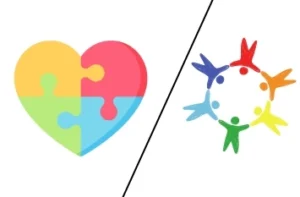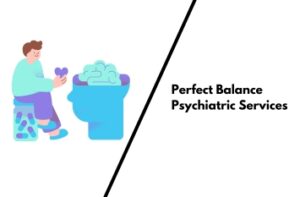Sometimes, life can feel like a dream. We go through our daily routines, but they all seem to lack substance and meaning. We question our purpose and wonder why we’re here. In those moments, life may not feel real. But what does it mean for life to “feel real”? And why do some people experience this feeling more than others? In fact, this concept has been explored by philosophers and psychologists for centuries.
In this blog, we will delve into the reasons why life may not feel real and how we can make our existence more meaningful.
Firstly, let’s consider what “reality” is. Our perception of reality is shaped by our senses and our experiences. We rely on our senses to interpret the world around us, but these senses can be fooled. Optical illusions and hallucinations demonstrate how our perception of reality can be distorted.
Furthermore, our experiences also play a role in shaping our sense of reality. Our past traumas, beliefs, and cultural norms all influence how we interpret and experience the world. This means that there is no objective reality – the reality is subjective and varies from person to person.
Depersonalization and derealization are two psychological phenomena that can contribute to the feeling of life not being real. Depersonalization is a feeling of detachment from oneself as if you’re observing your own life from the outside. Derealization, on the other hand, is a sense that the world around you is unreal or distorted.
These experiences can be triggered by stress, trauma, or other mental health issues. They can make it difficult to connect with the world around us and can create a sense of detachment from our own lives.
For example, someone experiencing depersonalization may feel like they’re going through the motions of life but not truly living it. They may feel like an outsider in their own body and struggle to connect with their thoughts and emotions.
Depersonalization and derealization can manifest in various ways. Some common symptoms include feeling emotionally numb, detached from reality or your own body, having distorted perceptions of time, and feeling like you’re living in a dream.
These experiences can be caused by a variety of factors, including traumatic events, stress, and underlying mental health conditions such as anxiety or depression. Some people may also experience these feelings as a side effect of certain medications or substance use.
Furthermore, depersonalization and derealization can also be a coping mechanism for dealing with intense emotions or trauma. It allows individuals to disconnect from their emotions and surroundings, but it can also make life feel distant and unreal.
Humans have a deep-seated need for meaning and purpose in life. We want to feel that our existence has significance and that we’re contributing to something bigger than ourselves. When this need is not fulfilled, life can feel empty and meaningless.
In today’s fast-paced and consumer-driven society, it’s easy to get caught up in the pursuit of material wealth and external validation. But these things don’t provide lasting fulfillment or a sense of purpose. As a result, many people struggle with feeling like their lives lack meaning.
So, what can we do to make life feel more real and meaningful? The answer lies in finding our own unique purpose and creating a sense of connection with the world around us.
One way to do this is by exploring our values and aligning our actions with them. When our actions are in line with our personal values, we feel a sense of authenticity and fulfillment. This can give our lives a greater sense of purpose and make them feel more real.
We can also find meaning by contributing to something bigger than ourselves, whether it be through volunteering, activism, or simply helping those in need. By connecting with others and making a positive impact on the world, we can create a deeper sense of connection and purpose in our lives.
If you’re experiencing depersonalization or derealization, it’s important to seek support from a mental health professional. Therapy and medication can help manage these symptoms and allow you to reconnect with your sense of self and the world around you.
In addition, practicing mindfulness and grounding techniques can also be helpful in managing these experiences. These techniques can help bring you back to the present moment and connect with your surroundings.
Following are the coping mechanisms that can help you reduce depersonalization and derealization:
It’s important to note that feeling like life isn’t real can also be a symptom of certain mental health disorders, such as depression, anxiety, or dissociative disorders. If you’re experiencing this feeling frequently and it’s interfering with your daily life, it may be a sign of an underlying issue that requires professional help.
In a nutshell, life may not feel real when our perception of reality is distorted, our need for meaning and purpose is unfulfilled, or we’re experiencing psychological symptoms such as depersonalization and derealization. By exploring our values, connecting with others, and seeking professional help if needed, we can find a deeper sense of connection and authenticity in our lives.
The feeling of life not being real can have various underlying causes, such as distorted perception, unfulfilled need for meaning, and psychological symptoms like depersonalization and derealization. By exploring our values, connecting with others, and seeking professional help if needed, we can find a deeper sense of connection and purpose in life. Remember that your life has significance, and by finding your unique purpose, you can make it feel more real and meaningful.
So, start exploring and make the most out of your life. Always remember to live in the present moment and find joy and fulfillment in each day.
For more information and guidance related to Mental and Behavioral Health, get in touch with our specialized Adult Mental Health Expert!




